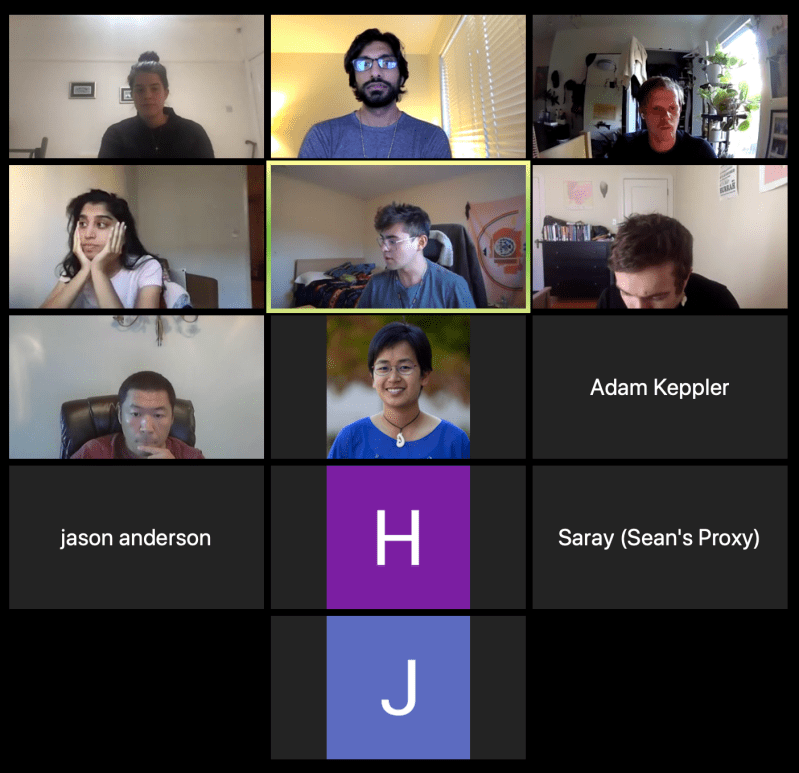The Graduate Student Council (GSC) unanimously passed a resolution in support of accommodations for online education across timezones on Wednesday night.
Residential & Dining Enterprises (R&DE) also raised the prospect of moving the location of its food pantry pop-ups closer to Escondido Village Graduate Residences (EVGR), and the Council discussed graduate student retirement plans.
The accommodations resolution, which was jointly passed by the Undergraduate Senate on Sept. 16, recommends that the University accommodates those who are affected by significant time differences during distance learning and encourages faculty to support accommodations, specifically by increasing the availability of office hours and setting a 24-hour minimum on exam time windows.
Associated Students of Stanford University (ASSU) President Vianna Vo ’21 will present the joint resolution at Thursday’s Faculty Senate meeting.
While Vo said it was unlikely that the Faculty Senate would mandate accommodations for all professors and teaching teams, Council Co-Chair Kari Barclay said the discussion at the meeting could improve awareness of the need for accommodations.
“Hopefully between a combination of [the GSC’s] communication, student self-advocacy and the conversation in the faculty senate we can get some movement on this,” said Barclay, who is a fifth-year theater and performance studies Ph.D. student.
The GSC also discussed graduate student retirement plans. Jason Anderson M.S. ’21 said graduate students were missing out on approximately $140,000 in benefits because the University does not offer graduate students the retirement savings options that it offers postdoctoral researchers. Anderson later wrote in a statement to The Daily that the number likely falls closer to $100,000, presuming certain assumptions like the rate of returns.
Peer institutions such as UC Berkeley offer graduate student retirement plans. Anderson also noted that the plan would not require the University to match student contributions, but said he was told by the Office of the Vice Provost for Graduate Education that creating such plans was “very low on their priority list.”
Councilor Sanna Ali, a fourth-year communications Ph.D. student, said she found the University’s response frustrating, as the retirement plans are “low-hanging fruit” that would improve graduate students’ retirement prospects.
Councilors raised concerns that the lack of a retirement contribution option hurts mid-career graduate students and graduate students with dependents.
Councilor Brooks Benard, a fourth-year cancer biology Ph.D. student, said having the option to contribute to a retirement plan is especially important for Ph.D. students.
“If you can’t put any money into a retirement account before you’re 30, that’s really detrimental to your ability to have a secure retirement,” he said.
This article has been corrected to reflect that Anderson is pursuing an M.S. degree, not an M.A. degree as a previous version of the article incorrectly stated. The Daily regrets this error. The article has also been updated to include a statement from Anderson to The Daily.
